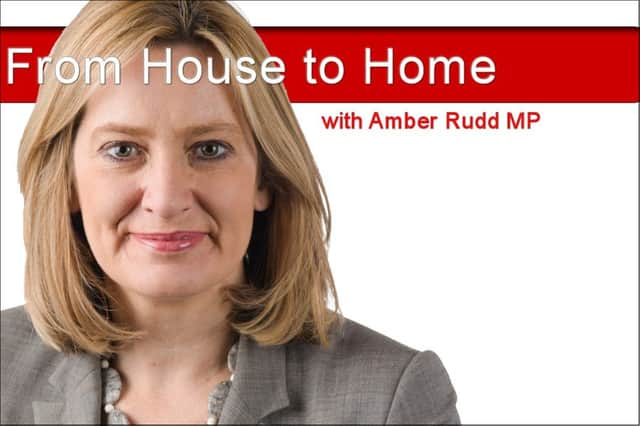Planning a broad range of reforms


Last Wednesday, Her Majesty the Queen delivered her 63rd Queen’s Speech. These speeches, written by the Government, set out its plans for the year ahead and the laws it hopes to bring in. It marks the beginning of the Parliamentary year and shows the ceremony and the rich history of Parliament at its finest.
For the event, the Queen travelled in the State Coach from Buckingham Palace to the House of Lords, escorted by the Household Cavalry. But, before she travels to Parliament certain fascinating historical “precautions” are adhered to.
Advertisement
Hide AdAdvertisement
Hide AdThe Yeomen of the Guard, the oldest of the royal bodyguards, armed with lanterns, search the cellars of the Palace of Westminster, a practice which dates back to the Gunpowder Plot of 1605.
Another tradition sees a Government whip held ‘’hostage’’ at the Palace to ensure the Queen’s safe return.
Upon her arrival at Parliament the Queen puts on the Imperial State Crown and the Robe of State before leading the Royal Procession to take her seat on the throne in the House of Lords.
Then, an official known as ‘Black Rod’ is sent to summon the Commons. I always enjoy the tradition that the doors to the House of Commons are then shut in his face - a practice which symbolises the independence of the Commons from the monarch and which dates back to the Civil War.
Advertisement
Hide AdAdvertisement
Hide AdBlack Rod strikes the door three times before it is opened and members of the House of Commons then walk to the House of Lords to see The Queen and hear her speech.
I walked with other MPs from the House of Commons to the House of Lords, where we all stand “at the bar” and listen.
In this year’s speech, the Queen announced twenty-one new bills which will help to deliver security to the working people of Hastings and Rye, increase the life chances of our most disadvantaged in the local community and strengthen our national security.
It will do this through some of the following measures: the Digital Economy Bill which will help create jobs and outline new obligations on broadband providers to make sure everyone in Britain has access to an affordable high speed internet connection; the Modern Transport Bill which will include legislation to enable the future development of the UK’s first commercial spaceports and new laws to make the UK ready to pioneer driverless cars.
Advertisement
Hide AdAdvertisement
Hide AdAt my Transport Summit earlier this year in March at Sussex Coast College, the Transport Research Laboratory (TRL) presented to the event on the evolution of driverless cars and brought a prototype of their latest development which hopes to reduce accidents, cut congestion, and lower the carbon footprint of road travel.
The proposed Neighbourhood Planning and Infrastructure Bill will reform planning and give local communities more power and control to shape their own area.
The Local Growth and Jobs Bill will give local authorities full control of the money they raise through business rates, so they can attract business and investment to their local areas and will include a transfer of up to £13 billion to councils through allowing them to retain 100 per cent of the business rates they collect.
The Speech covered a broad-range of issues, including maintaining defence spending above 2% of GDP, introducing a new system of allocating funding for schools and the biggest reform of our prisons since Victorian times which will include new powers for prison governors to allow them unprecedented levels of control over all aspects of prison management. A full list of policies are available at https://www.gov.uk/government/topical-events/queens-speech-2016.
Advertisement
Hide AdAdvertisement
Hide AdThe State Opening of Parliament is a colourful, ceremonial occasion swathed with echoes of history with its traditions and symbols dating back centuries.
We are a nation to whom history and tradition are important.
I find the State Opening of Parliament a fascinating combination of a modern state proposing reforms to modernise our infrastructure and provide exciting opportunities for a nation which retains its unique traditions and wears its history with pride.
In my opinion, we would be a poorer place without it.